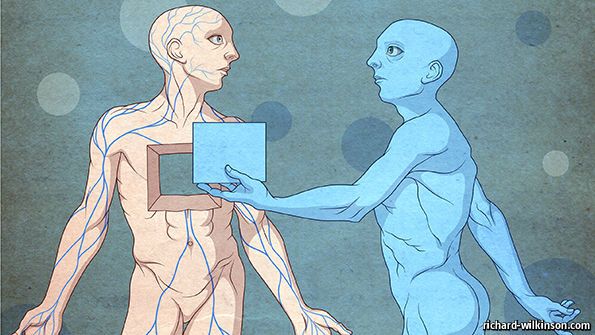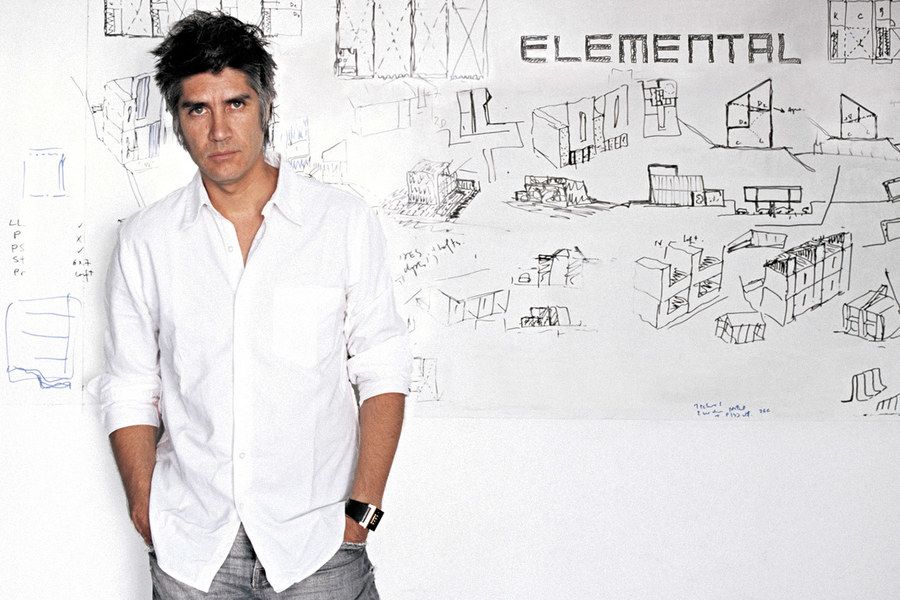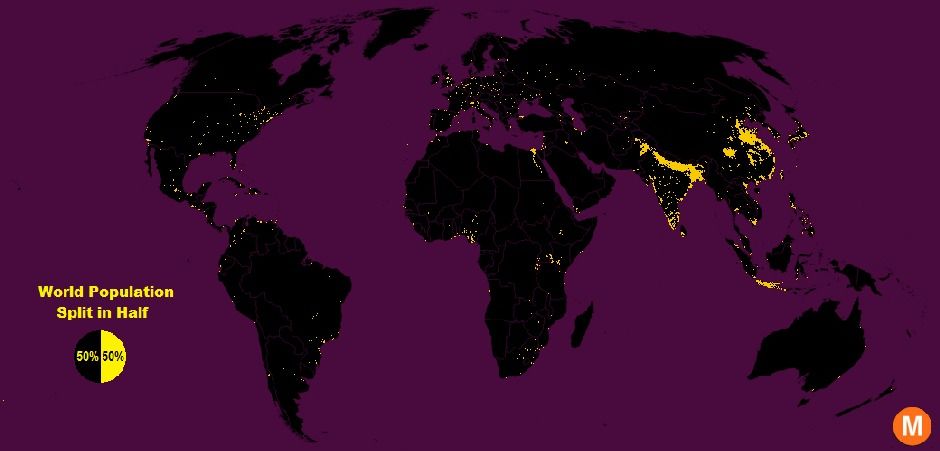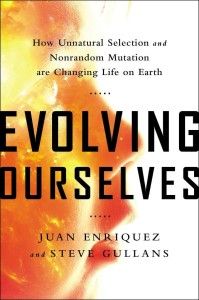“After decades of piecemeal progress, the science of cryogenically storing human organs is warming up”


“After decades of piecemeal progress, the science of cryogenically storing human organs is warming up”

“I was fortunate enough to meet Prime Minister Justin Trudeau recently. Seeing a young, exciting Prime Minister and his colleagues in action was a breath of fresh air. At Davos, where too many people focus on the negatives, he was optimistic on topics ranging from drug policy to climate change to diversity.”

“Quantum mechanics, a new experiment suggests, requires that multiple adventures occur simultaneously to create a consistent account of history.”

“While Aravena, who is from Chile, is relatively unknown in the United States (although he taught for five years at Harvard and served for a period on the Pritzker jury), for at least the last decade he has been establishing himself on the international architecture scene as a serious and unusual practitioner who straddles, subtly but brilliantly, the worlds of formal high design and social responsibility. He has plenty of credibility as a serious designer—he was recently named curator of the 2016 Venice Architecture Biennale—but his own mode of architectural practice is what sets him apart. Aravena runs Elemental, which bills itself as a “do tank”—not a think tank—and which creates “projects of public interest and social impact, including housing, public space, infrastructure and transportation.””

“Alice Paul was the architect of some of the most outstanding political achievements on behalf of women in the 20th century. Born on January 11, 1885 to Quaker parents in Mt. Laurel, New Jersey, Alice Paul dedicated her life to the single cause of securing equal rights for all women.”

“[H]alf the people in the world cram into just 1 percent of the Earth’s surface (in yellow), and the other half sprawl across the remaining 99 percent (in black).”
https://soundcloud.com/kelly-tang-9/sets/nasa-sounds-of-earth
“Programming ‘indestructible’ bacteria to write poetry.”

At one time or another, we’ve all been encouraged to “maximize our potential.” In a recent interview, Academic and Entrepreneur Juan Enriquez said that mankind is making progress toward expanding beyond its potential. And the changes, he believes, could be profound.
To illustrate the process, Enriquez theorized what might happen if we were to bring Charles Darwin back to life and drop him in the middle of Trafalgar Square. As Darwin takes out his notebook and starts observing, Enriquez suggested he would likely see what might appear to be a different species. Since Darwin’s time, humans have grown taller, and with 1.5 billion obese people, larger. Darwin might also notice some other features too that many of us take for granted — there are more senior citizens, more people with all their teeth, a lot fewer wrinkles, and even some 70-year-olds running in marathons.
“There’s a whole series of morphologies that are just different about our bodies, but we don’t notice it. We don’t notice we’ve doubled the lifespan of humans in the last century,” Enriquez said. “We don’t notice how many more informations (sic) come into a brain in a single day versus what used to come in in a lifetime. So, across almost every part of humanity, there have been huge changes.”
Part of the difference that Darwin would see, Enriquez noted, is that natural selection no longer applies as strongly to life and death as it once did. Further, random gene mutations that led to some advantages kept getting passed down to generations and became part of the species. The largest difference, however, is our ongoing move toward intelligent design, he said.
“We’re getting to the stage where we want to tinker with humans. We want to insert this gene so this person doesn’t get a deadly disease. We want to insert this gene so that maybe the person performs better on an 8,000 meter peak climb, or in sports, or in beauty, or in different characteristics,” Enriquez said. “Those are questions we never used to have to face before because there was one way of having sex and now there’s at least 17.”
According to Enriquez, the concept of evolving ourselves is an important one because we are the first and only species on earth that has deliberately taken control over the pattern of evolution of what lives and dies (Science Magazine seems to agree). The technologies we’re developing now towards this goal provide us with an instrument for the a potential longer survival of the species than might otherwise be possible.
Those notions, however, raise a number of moral and ethical questions. “What is humanity…where do we want to take it?” Enriquez poses. While he noted that it’s easy to project that tinkering with humanity will lead to a dystopic future, he remains cautiously optimistic about our potential.
“I think we’ve become a much more domesticated species. We’re far less likely to murder each other than we were 50 years ago, 100 years ago or 200 years ago. We have learned how to live together in absolutely massive cities,” Enriquez said. “I think we have become far more tolerant of other religions (and) other races. There are places where this hasn’t happened but, on the whole, life has gotten a whole lot better in the last two or three hundred years and as you’re looking at that, I think we will have the tolerance for different choices made with these very instruments, and I think that’s a good thing.”
As he looks at the future of evolving humanity, Enriquez sees reasons for a great deal of optimism in the realm of single gene modification, especially in the area of eradicating disease and inherited conditions. The consequences, however, are still an unknown.
“In the UK, there was a question, ‘Do we insert gene code into a fertilized egg to cure a deadly disease?’ That is a real question, because that would keep these babies from dying early from these horrendous diseases,” Enriquez said. “The consequences of that are, for the first time, probably in the next year, you’ll have the first child born to three genetic parents.”
The path toward evolving human intelligence in the near future isn’t as cut and dry, Enriquez said. Once we establish the implications and morality between governments, religious organizations, and the scientific community, there are still plenty of hurdles to clear.
“There have been massive studies in China and we haven’t yet identified genes correlated to intelligence, even though we believe intelligence has significant inherited capacity,” Enriquez said. “I think you have to separate reality from fiction. The ability to insert a gene or two, and really modify the intelligence of human beings, I think, is highly unlikely in the next decade or two decades.”

“Plenty of forward-thinking companies have innovation divisions that try and predict the future, disrupt old models, and develop cutting-edge products. They don’t nest those divisions inside their human resources departments. So why shouldn’t gender diversity efforts be a part of corporate innovation?”
In the various incarnations of Douglas Adams’ Hitchhiker’s Guide To The Galaxy, a sentient robot named Marvin the Paranoid Android serves on the starship Heart of Gold. Because he is never assigned tasks that challenge his massive intellect, Marvin is horribly depressed, always quite bored, and a burden to the humans and aliens around him. But he does write nice lullabies.
While Marvin is a fictional robot, Scholar and Author David Gunkel predicts that sentient robots will soon be a fact of life and that mankind needs to start thinking about how we’ll treat such machines, at present and in the future.
For Gunkel, the question is about moral standing and how we decide if something does or does not have moral standing. As an example, Gunkel notes our children have moral standing, while a rock or our smartphone may not have moral consideration. From there, he said, the question becomes, where and how do we draw the line to decide who is inside and who is outside the moral community?
“Traditionally, the qualities for moral standing are things like rationality, sentience (and) the ability to use languages. Every entity that has these properties generally falls into the community of moral subjects,” Gunkel said. “The problem, over time, is that these properties have changed. They have not been consistent.”
To illustrate, Gunkel cited Greco-Roman times, when land-owning males were allowed to exclude their wives and children from moral consideration and basically treat them as property. As we’ve grown more enlightened in recent times, Gunkel points to the animal rights movement which, he said, has lowered the bar for inclusion in moral standing, based on the questions of “Do they suffer?” and “Can they feel?” The properties that are qualifying properties are no longer as high in the hierarchy as they once were, he said.
While the properties approach has worked well for about 2,000 years, Gunkel noted that it has generated more questions that need to be answered. On the ontological level, those questions include, “How do we know which properties qualify and when do we know when we’ve lowered the bar too low or raised it too high? Which properties count the most?”, and, more importantly, “Who gets to decide?”
“Moral philosophy has been a struggle over (these) questions for 2,000 years and, up to this point, we don’t seem to have gotten it right,” Gunkel said. “We seem to have gotten it wrong more often than we have gotten it right… making exclusions that, later on, are seen as being somehow problematic and dangerous.”
Beyond the ontological issues, Gunkel also notes there are epistemological questions to be addressed as well. If we were to decide on a set of properties and be satisfied with those properties, because those properties generally are internal states, such as consciousness or sentience, they’re not something we can observe directly because they happen inside the cranium or inside the entity, he said. What we have to do is look at external evidence and ask, “How do I know that another entity is a thinking, feeling thing like I assume myself to be?”
To answer that question, Gunkel noted the best we can do is assume or base our judgments on behavior. The question then becomes, if you create a machine that is able to simulate pain, as we’ve been able to do, do you assume the robots can read pain? Citing Daniel Dennett’s essay Why You Can’t Make a Computer That Feels Pain, Gunkel said the reason we can’t build a computer that feels pain isn’t because we can’t engineer a mechanism, it’s because we don’t know what pain is.
“We don’t know how to make pain computable. It’s not because we can’t do it computationally, but because we don’t even know what we’re trying to compute,” he said. “We have assumptions and think we know what it is and experience it, but the actual thing we call ‘pain’ is a conjecture. It’s always a projection we make based on external behaviors. How do we get legitimate understanding of what pain is? We’re still reading signs.”
According to Gunkel, the approaching challenge in our everyday lives is, “How do we decide if they’re worthy of moral consideration?” The answer is crucial, because as we engineer and build these devices, we must still decide what we do with “it” as an entity. This concept was captured in a PBS Idea Channel video, an episode based on this idea and on Gunkel’s book, The Machine Question.
To address that issue, Gunkel said society should consider the ethical outcomes of the artificial intelligence we create at the design stage. Citing the potential of autonomous weapons, the question is not whether or not we should use the weapon, but whether we should even design these things at all.
“After these things are created, what do we do with them, how do we situate them in our world? How do we relate to them once they are in our homes and in our workplace? When the machine is there in your sphere of existence, what do we do in response to it?” Gunkel said. “We don’t have answers to that yet, but I think we need to start asking those questions in an effort to begin thinking about what is the social status and standing of these non-human entities that will be part of our world living with us in various ways.”
As he looks to the future, Gunkel predicts law and policy will have a major effect on how artificial intelligence is regarded in society. Citing decisions stating that corporations are “people,” he noted that the same types of precedents could carry over to designed systems that are autonomous.
“I think the legal aspect of this is really important, because I think we’re making decisions now, well in advance of these kind of machines being in our world, setting a precedent for the receptivity to the legal and moral standing of these other kind of entities,” Gunkel said.
“I don’t think this will just be the purview of a few philosophers who study robotics. Engineers are going to be talking about it. AI scientists have got to be talking about it. Computer scientists have got to be talking about it. It’s got to be a fully interdisciplinary conversation and it’s got to roll out on that kind of scale.”